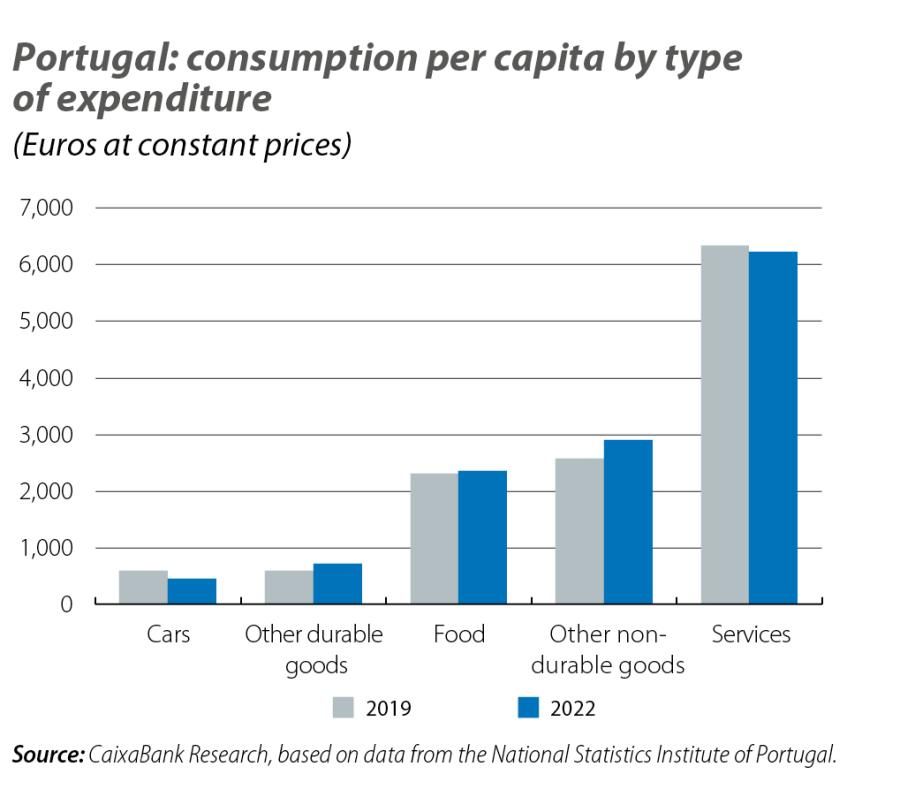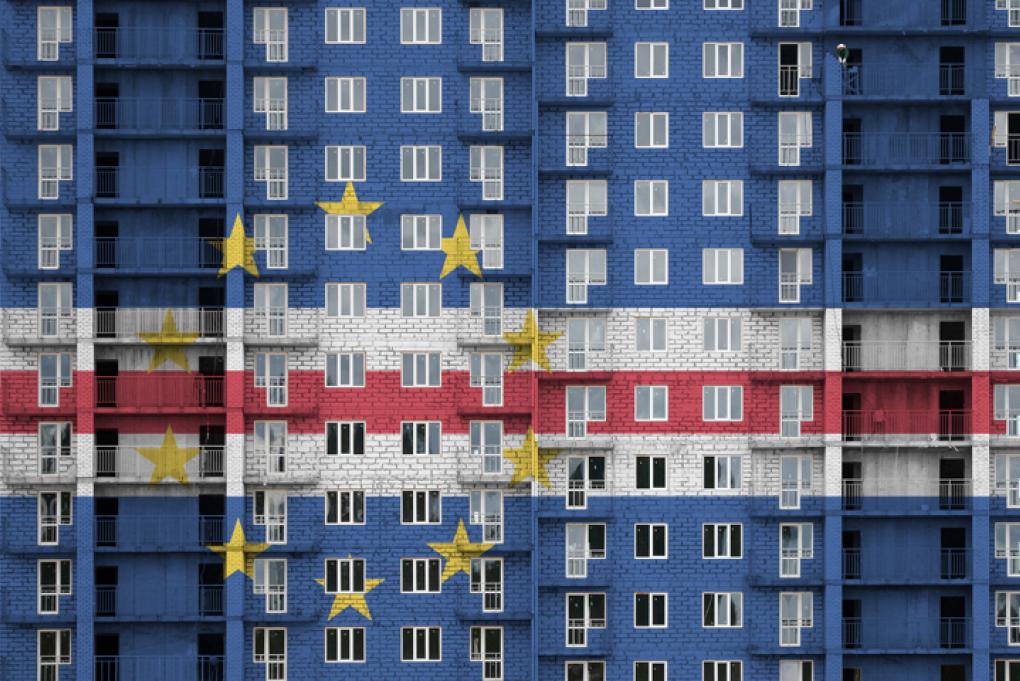Recap of Portuguese household consumption in 2022

Portuguese household consumption represents no less than 63% of the country’s GDP (in Spain, the figure is around 56%). In 2022, it registered significant growth of 5.8% and contributed 3.7 pps to the year’s GDP growth of 6.7%. In this article, we analyse how household consumption was distributed by type of expenditure in 2022, after having left behind the consumption patterns caused by COVID-19.
The analysis we present below is based on the evolution of consumption at constant prices.1 The most notable finding is that the consumption of durable goods in 2022 remained below pre-pandemic levels due to the significant reduction in car sales. It should be recalled that consumption relating to car sales had fallen by over 10% in 2020, as the need to move around drastically decreased during the lockdowns. In 2021, the persistence of the mobility restrictions could still be considered sufficient justification for the weak recovery. However, the weakness of the figure for 2022 is explained by the production difficulties which the automotive sector faced (and continues to face) as a result of the bottlenecks in global supply chains.
- 1. The breakdown of private household consumption published by the National Statistics Institute is higher at current prices than that published for constant prices. To allow for a more precise analysis, we apply the hypothesis that the relative weight of expenditure on cars and services as a proportion of household consumption at constant prices would be the same as the relative weight of these same items at current prices; the rest of the components are calculated based on the difference relative to the main components at constant prices.

In contrast, expenditure on other types of durable goods, which remained relatively stable during the lockdowns, soared in 2022 and surpassed the levels of 2019 by 23%. A comparison of this data with those related to turnover in the retail sector suggests that this type of expenditure was mainly driven by home renovations and the purchase of computers and communication devices. This trend, which had been apparent practically since the beginning of the lockdowns, continued in 2022, possibly as a result of changes in people’s routines with the extension of teleworking, which led to new needs related to people’s homes and technology which previously did not exist or were considered a low priority.

In the case of non-durable goods, non-food products and services recovered rapidly in 2022, reaching just 1% below 2019 expenditure levels (all figures quoted are in real terms). However, expenditure on food products followed quite a different pattern. The fall which this category suffered in 2022 is a response, in part, to the rise in food prices. However, it is also the case that this decrease is due to a certain normalisation as the consumption pattern falls closer in line with pre-pandemic behaviours.
During 2020 and 2021, when Portuguese people spent longer in their homes, expenditure on food products recorded cumulative growth of around 5.5% compared to 2019 (4.1% in 2020 and 1.3% in 2021). The year 2022, meanwhile, was the first full year with normal patterns of activity and mobility, with the reduction in teleworking this entailed. This is also corroborated by the per capita expenditure on food products, which at constant prices amounted to 2,367 euros in 2022, 2% more than in 2019.

In conclusion, despite the undeniable impact of high inflation on the expenditure of Portuguese households, it could be said that the pattern in consumption above all reflects the beginning of a normalisation of the distribution of household expenditure, and this trend is most likely to continue in 2023.
- 1. The breakdown of private household consumption published by the National Statistics Institute is higher at current prices than that published for constant prices. To allow for a more precise analysis, we apply the hypothesis that the relative weight of expenditure on cars and services as a proportion of household consumption at constant prices would be the same as the relative weight of these same items at current prices; the rest of the components are calculated based on the difference relative to the main components at constant prices.


